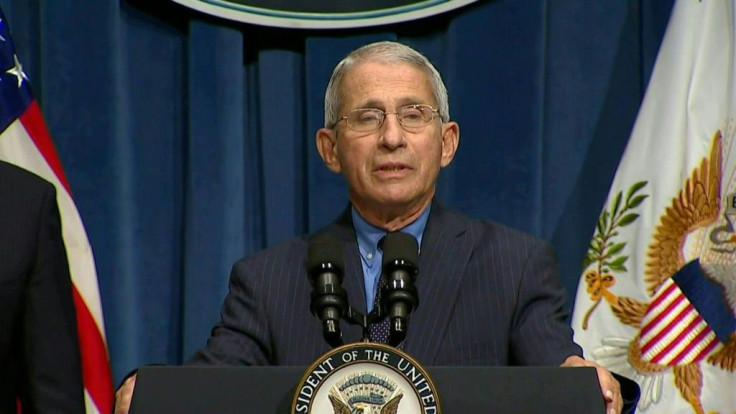Dr. Fauci, Other Top Scientists, Condemn Use of Herd Immunity

The voices of those opposed to herd immunity rose in unison yesterday and today, from the director of the NIH, to his director of the infectious diseases division, to the 80 scientists who signed a letter, to the head of the WHO.
Using words like “unethical,” “dangerous,” and “nonsense,” the naysayers to what is known as The Great Barrington Declaration headed to airwaves and cyberspace, trying to offer counterpoints to this declaration. The White House is in line with the Declaration's signatories; President Trump has long espoused herd immunity as the method to maintain some normalcy while protecting the vulnerable.
But COVID-19 isn't a candidate for this approach, the naysayers said.
“This is a fringe component of epidemiology,” said Frank Collins, MD, PhD. “This is not mainstream science. It’s dangerous. It fits into the political views of certain parts of our confused political establishment,” said Dr. Collins, head of the National Institutes of Health. “I’m sure it will be an idea that someone can wrap themselves in as a justification for skipping wearing masks or social distancing and just doing whatever they damn well please.” He made his comments in the Washington Post.
Anthony Fauci, MD, head of the NIH’s infectious disease division, made his on Yahoo! News.
“Anybody who knows anything about epidemiology will tell you that that is nonsense and very dangerous, “because what will happen is that if you do that, by the time you get to herd immunity, you will have killed a lot of people [which] would have been avoidable.”
The 80 scientists made their comments Oct. 15 in the journal The Lancet. “Any pandemic management strategy relying upon immunity from natural infections for COVID-19 is flawed,” they wrote.
Because there is no evidence (so far) that shows protective immunity against the virus when contracted naturally, the ensuing viral transmission “would be the consequence of waning immunity [which] would present a risk to vulnerable populations for the indefinite future," they wrote.
Herd immunity, they continued, would result in recurrent epidemics.
But the authors of the Declaration say that they too have the citizenry’s best interests at heart. “We have devoted our careers to protecting people,” they wrote. The current lockdowns, they continued, will result in “lower childhood vaccination rates, worsening cardiovascular disease outcomes, fewer cancer screenings and deteriorating mental health.” The authors and signatories hail from respected institutions. They include: Massachusetts General Hospital, the University of Cambridge, Sweden’s Karolinska Institute, and Stanford.
What these scientists are advocating is that those who are not vulnerable to the virus should be permitted to resume normal life. As the virus spreads among them, “the risk of infection to all – including the vulnerable – falls.” They also said measures should be put in place to protect the elderly: have their groceries delivered, meet family outside their homes, and so on. The Barrington signatories said herd immunity can happen with just 20% or so of the population, while those in the opposite camp said the figure would have to be much higher.
What’s particularly faulty about the Declaration, Dr. Fauci said, is that the authors assume the vulnerable live in protected facilities, but that isn’t necessarily true. The other issue is that many people who contract the virus will likely develop serious complications because of their existing health-related issues, like heart disease and obesity.
So far, close to 217,000 people have died in this country from complications of the coronavirus, according to Johns Hopkins University.
Published by Medicaldaily.com



























